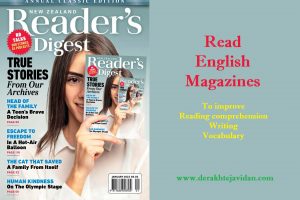نکات مربوط به “adjectives” در زبان انگلیسی!

نکات مربوط به “adjectives” در زبان انگلیسی!
نکات مربوط به “adjectives” در زبان انگلیسی!
Unlike in many other languages, adjectives in English do not change (agree) with the noun that they modify:
All new foreign students are welcome to join the clubs and societies.
Not: All new foreigns students …
Every room was painted in different colours.
Not: … in differents colours.
Identifying adjectives
There is no general rule for making adjectives. We know they are adjectives usually by what they do (their function) in a sentence. However, some word endings (suffixes) are typical of adjectives.
I hate windy days.
San Francisco is a very hilly place.
Some words ending in -ly can be both adjectives and adverbs. These include daily, early, monthly, weekly, nightly, yearly:
Adjective: She gets a weekly payment from her parents. (She gets money every week.)
Adverb: I pay my rent weekly. (I pay my rent every week.)
Some words ending in -ly are only adjectives and not adverbs. These include: costly, cowardly, deadly, friendly, likely, lonely, lovely, oily, orderly, scholarly, silly, smelly, timely, ugly, woolly.
We enjoyed the trip to America but it was a costly holiday.
Oily fish is very healthy because it contains omega 3.
We do not use these endings with two-syllable adjectives ending in a stressed syllable nor with longer adjectives with more than two syllables. The comparatives and superlatives of these adjectives are formed using more and most.
|
base form |
comparative |
superlative |
|
complete |
more complete Not: completer |
most complete Not: completest |
|
interesting |
more interesting Not: interestinger |
most interesting Not: interestingest |
Adjectives: with –ing and –ed (interesting, interested)
We use the –ing and –ed forms of regular and irregular verbs as adjectives:
-ing forms
|
verb |
example |
|
annoy |
|
|
amaze |
|
|
boil |
|
|
excite |
|
-ed forms
|
verb |
example |
|
bore |
|
|
pack |
|
|
smoke |
|
|
make |
|
|
teach |
|
|
excite |
|
Adjectives with –ing and –ed endings have different meanings.
|
–ing adjectives –ing adjectives describe the effect |
-ed adjectives -ed adjectives describe how a person feels |
|
|
Commonly confused pairs of adjectives ending in –ing and –ed are: interesting, interested; boring, bored; exciting, excited; embarrassing, embarrassed.
Tag:academic writing, Grammar, IELTS, IELTS Writing, TOEFL, TOEFL Writing, Writing, آیلتس, رایتینگ, رایتینگ آیلتس, گرامر



